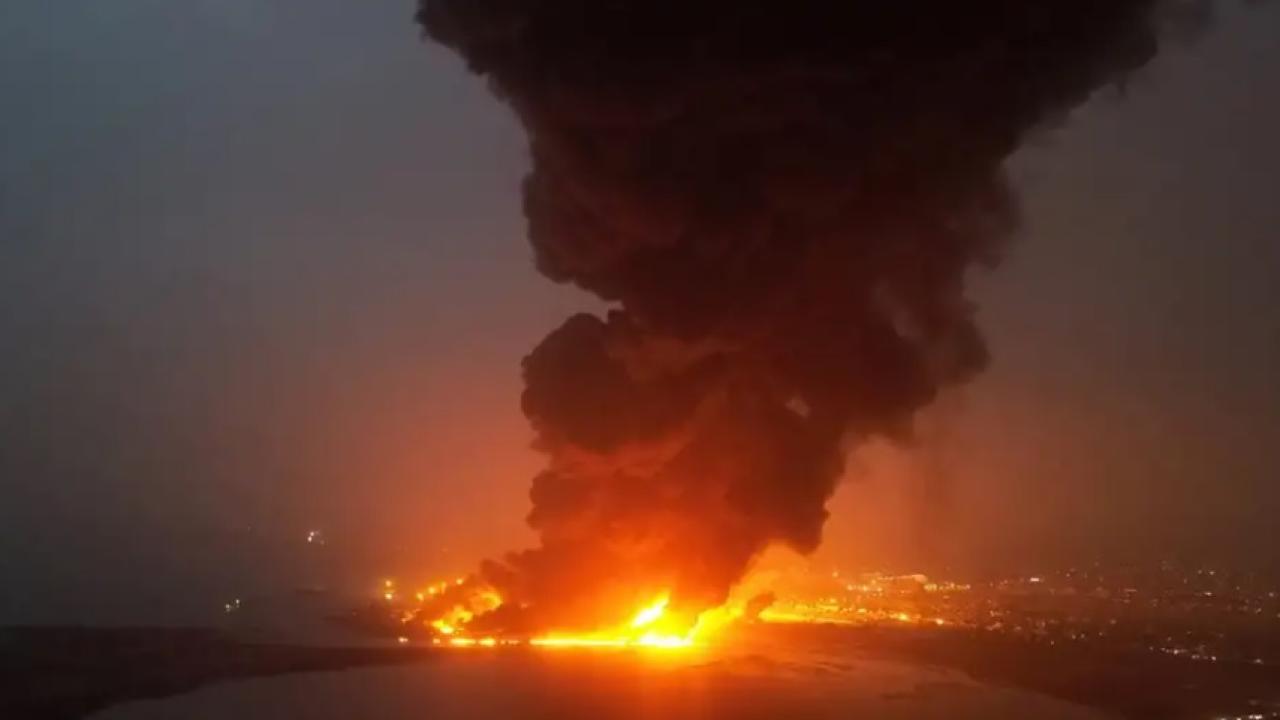
Most shipping companies have diverted their ships to avoid Houthi attacks. But the Israeli attack on the Red Sea port of Hodeidah represents an even worse escalation for international trade.
Maritime traffic through the Red Sea is a vital shipping lane for transporting goods from Asia to Europe. However, it is estimated that trade in the area has plummeted by almost 80 percent. A decline now aggravated by the increase in fighting between the Houthi rebels, who control much of Yemen, and Israel. Already last year, the Iran-backed Houthi militia attacked ships in the Red Sea in response to Israel's war against the Palestinian terrorist movement Hamas in Gaza, forcing shipping companies to divert their ships around southern Africa.
Despite the risks, some ships continue to choose this route, with dozens of vessels traversing a waterway that, at its narrowest point, is only 30 kilometers wide.
Emily Stausboll, a maritime transport analyst at Denmark-based consultancy Xaneta, told DW that "larger international container ships were the target [of the Houthis]." "Smaller and regional vessels have not been subject to the same fire," he adds.
Stausboll maintains that despite the risk of being attacked, smaller operators decided they could still cross the Red Sea "reasonably safely."
Damage to oil facilities and port cranes
Although the port of Hodeida, located on the shores of the Red Sea in western Yemen, is not a significant stop for international container ships, the facility is Yemen's main port and a vital entry point for up to 80 percent of imports of fuel, food and other humanitarian aid to the poorest country on the Arabian Peninsula.
The Houthis claimed that Israeli airstrikes on Saturday had damaged the port's fuel storage facilities and a nearby power plant.
The US-based Novanti group said five container cranes were "probably not operational", and the British security company Ambrey stressed that four merchant ships were in the port at the time of the attack and another eight were anchored. Journalist Basem Ganani wrote on X (formerly Twitter) that the port would be operational again in a couple of days.
These attacks on the port of Hodeidah sparked widespread condemnation, with many calling them a flagrant violation of international law. But Israeli Prime Minister Benjamin Netanyahu defended the decision, saying Hodeidah "is not an innocent port."
The facility was "the entry point for weapons that Iran supplies to its Houthi terrorist proxies," Netanyahu said, and is used to attack Israel and Arab states in the region, among others.
Since then, both Israel and the Houthis have vowed to step up their attacks on each other.
High shipping costs
Meanwhile, maritime transport costs have skyrocketed. According to LSEG Shipping Research, diverting ships around the Cape of Good Hope in South Africa takes up to two weeks longer than through the Suez Canal. On the other hand, an escalation between Israel and the Houthis could have an even greater impact on consumer prices, as already happened after the COVID-19 crisis.
The diversion is also having an environmental impact, as carbon emissions from the shipping sector increased by 23 million tons in the first half of the year, according to Bloomberg.
"In the first weeks and months, we were talking about when shipping would return to the Red Sea, but [after the latest attacks] that seems further and further away," says Stausboll. "It is clear that we are settling on commercial patterns that will have a long haul."









